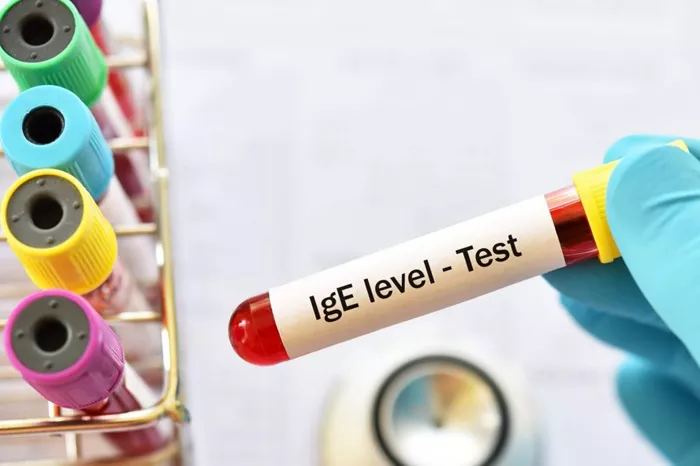Maintaining personal hygiene is a fundamental aspect of health and well-being. However, poor hygiene can sometimes be an indicator of underlying mental health issues. This article explores various mental disorders that can lead to poor hygiene, examining their symptoms, causes, and potential treatments.
Understanding Personal Hygiene
Personal hygiene involves keeping one’s body clean to prevent illness and promote health. It includes practices such as bathing, brushing teeth, washing hands, and wearing clean clothes. Good hygiene is crucial for social acceptance, self-esteem, and overall health. Conversely, poor hygiene can lead to infections, diseases, and social isolation.
Mental Health and Hygiene
Mental health significantly influences personal hygiene. Various mental disorders can impair an individual’s ability to maintain personal hygiene due to factors like cognitive dysfunction, lack of motivation, or distorted perceptions. Understanding the link between mental health and hygiene can help in identifying and treating underlying disorders.
Schizophrenia
Symptoms and Impact on Hygiene
Schizophrenia is a severe mental disorder characterized by distortions in thinking, perception, emotions, language, sense of self, and behavior. Symptoms include hallucinations, delusions, disorganized thinking, and impaired functioning. These symptoms can significantly affect an individual’s ability to maintain personal hygiene.
Cognitive and Behavioral Factors
Individuals with schizophrenia often experience cognitive deficits, such as impaired memory and executive functioning, which can hinder their ability to perform daily tasks, including personal hygiene. Disorganized thinking and behavior can lead to neglect of self-care routines.
Treatment Approaches
Treating schizophrenia typically involves antipsychotic medications and psychotherapy. Cognitive-behavioral therapy (CBT) can help improve hygiene by addressing cognitive deficits and encouraging the establishment of daily routines. Support from caregivers and mental health professionals is crucial.
Depression
Symptoms and Impact on Hygiene
Depression is a common mental disorder characterized by persistent sadness, loss of interest or pleasure in activities, and other symptoms like fatigue, changes in appetite, and sleep disturbances. One of the significant impacts of depression is a reduced ability to maintain personal hygiene.
Lack of Motivation and Energy
Depression often causes a severe lack of motivation and energy, making even basic tasks like showering or brushing teeth feel insurmountable. This can lead to a downward spiral where poor hygiene exacerbates feelings of worthlessness and low self-esteem.
Treatment Approaches
Treatment for depression may include antidepressant medications, psychotherapy (such as CBT or interpersonal therapy), and lifestyle changes. Establishing a daily routine and setting small, achievable hygiene goals can help individuals gradually improve their self-care practices.
Obsessive-Compulsive Disorder (OCD)
Symptoms and Impact on Hygiene
Obsessive-compulsive disorder (OCD) involves unwanted and intrusive thoughts (obsessions) and repetitive behaviors or mental acts (compulsions) performed to reduce the distress caused by these obsessions. Paradoxically, OCD can both lead to excessive hygiene behaviors and poor hygiene.
Excessive Hygiene Practices
Some individuals with OCD may engage in excessive cleaning and grooming due to fears of contamination. This can be time-consuming and may lead to physical harm, such as skin damage from over-washing.
Neglect Due to Avoidance
Conversely, other individuals might avoid hygiene-related activities due to obsessive fears or compulsions. For example, they might avoid showering if it is associated with distressing obsessive thoughts.
Treatment Approaches
OCD treatment often involves a combination of medication (such as selective serotonin reuptake inhibitors) and exposure and response prevention (ERP) therapy, a type of CBT. ERP helps individuals face their fears and reduce compulsive behaviors.
Bipolar Disorder
Symptoms and Impact on Hygiene
Bipolar disorder is characterized by extreme mood swings, including manic episodes of high energy and euphoria and depressive episodes of low energy and despair. These mood swings can significantly affect personal hygiene.
Manic and Depressive Episodes
During manic episodes, individuals may neglect personal hygiene due to a heightened sense of invincibility or being preoccupied with other activities. During depressive episodes, the lack of energy and motivation can lead to poor hygiene.
Treatment Approaches
Treatment for bipolar disorder typically involves mood stabilizers, antipsychotic medications, and psychotherapy. Establishing a consistent routine and receiving support from healthcare providers can help manage hygiene during both manic and depressive phases.
Anxiety Disorders
Symptoms and Impact on Hygiene
Anxiety disorders, including generalized anxiety disorder (GAD), social anxiety disorder, and panic disorder, are characterized by excessive fear or worry. These disorders can interfere with daily functioning, including personal hygiene.
Avoidance Behaviors
People with severe anxiety may avoid certain hygiene activities due to fear of specific triggers (e.g., fear of leaving the house to buy hygiene products) or social situations (e.g., avoiding showers due to fear of being seen as inadequate).
Treatment Approaches
Anxiety disorders are often treated with a combination of medication (such as anti-anxiety medications or antidepressants) and CBT. Exposure therapy can help individuals gradually face and overcome their fears, improving their ability to maintain hygiene.
Dementia
Symptoms and Impact on Hygiene
Dementia encompasses various conditions characterized by cognitive decline, affecting memory, thinking, and social abilities. Alzheimer’s disease is the most common form of dementia. The cognitive impairments in dementia can severely impact personal hygiene.
Cognitive Decline
Memory loss and confusion can lead individuals to forget daily hygiene tasks or how to perform them. They may also lose the ability to recognize the importance of hygiene.
Treatment Approaches
While there is no cure for dementia, treatments can help manage symptoms. These may include medications to slow cognitive decline and therapies to support daily functioning. Caregivers play a crucial role in assisting with personal hygiene.
Substance Use Disorders
Symptoms and Impact on Hygiene
Substance use disorders involve the excessive use of substances like alcohol, drugs, or prescription medications, leading to addiction. The effects of substance abuse can significantly impact personal hygiene.
Neglect Due to Addiction
Individuals with substance use disorders may neglect hygiene due to preoccupation with obtaining and using substances. The physical and mental health consequences of substance abuse can also impair their ability to care for themselves.
Treatment Approaches
Treatment for substance use disorders often involves a combination of detoxification, medication, therapy (such as CBT or motivational interviewing), and support groups. Addressing the addiction can help improve overall health and hygiene.
Hoarding Disorder
Symptoms and Impact on Hygiene
Hoarding disorder is characterized by persistent difficulty discarding or parting with possessions, leading to cluttered living spaces. This disorder can have a direct impact on personal hygiene.
Living Environment
Clutter can make it difficult to access hygiene supplies or use bathroom facilities. The unsanitary conditions created by hoarding can also lead to health issues.
Treatment Approaches
CBT, specifically tailored for hoarding, can help individuals develop healthier attitudes toward possessions and improve their living conditions. Professional organizers and support from family members can also be beneficial.
Post-Traumatic Stress Disorder (PTSD)
Symptoms and Impact on Hygiene
PTSD is a mental health condition triggered by experiencing or witnessing a traumatic event. Symptoms include flashbacks, nightmares, severe anxiety, and uncontrollable thoughts about the event. PTSD can affect personal hygiene in various ways.
Avoidance and Hypervigilance
Individuals with PTSD may avoid bathing or grooming due to traumatic associations with these activities. Hypervigilance and anxiety can make it difficult to engage in regular self-care routines.
Treatment Approaches
PTSD treatment often involves therapy (such as CBT or eye movement desensitization and reprocessing) and medications (such as antidepressants). Establishing a safe and supportive environment can help individuals improve their hygiene practices.
Autism Spectrum Disorder (ASD)
Symptoms and Impact on Hygiene
Autism spectrum disorder (ASD) is a developmental disorder affecting communication, behavior, and social interactions. Individuals with ASD may face challenges with personal hygiene due to sensory sensitivities and difficulties with routine changes.
Sensory Sensitivities
Sensitivity to textures, smells, or sounds associated with hygiene activities (e.g., the feeling of water or the sound of a shower) can make these tasks uncomfortable or distressing.
Routine and Structure
Changes in routine can be particularly challenging for individuals with ASD. They may struggle to integrate new hygiene practices into their daily routines.
Treatment Approaches
Interventions for ASD often include behavioral therapies, such as applied behavior analysis (ABA), which can help individuals develop and maintain hygiene routines. Occupational therapy can address sensory sensitivities and improve tolerance to hygiene activities.
Conclusion
Poor hygiene can be a visible sign of various mental disorders, each presenting unique challenges. Understanding the specific ways these disorders impact personal hygiene is crucial for effective treatment and support. By addressing the underlying mental health issues and providing appropriate interventions, individuals can improve their hygiene practices, thereby enhancing their overall health and quality of life. Family members, caregivers, and healthcare providers play a vital role in this process, offering support and encouragement to those struggling with both mental health and hygiene.
[inline_related_posts title=”You Might Be Interested In” title_align=”left” style=”list” number=”6″ align=”none” ids=”8778,8775,8772″ by=”categories” orderby=”rand” order=”DESC” hide_thumb=”no” thumb_right=”no” views=”no” date=”yes” grid_columns=”2″ post_type=”” tax=””]


































